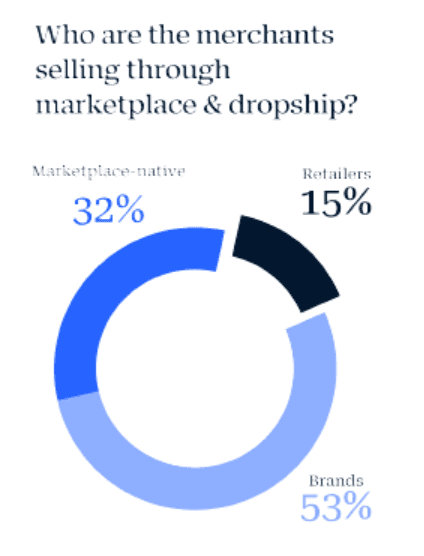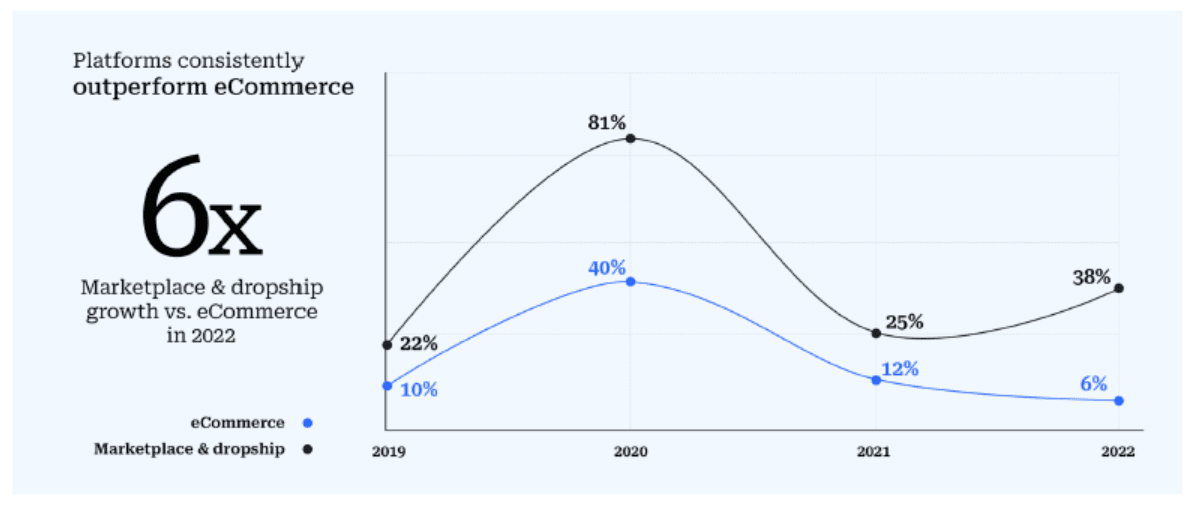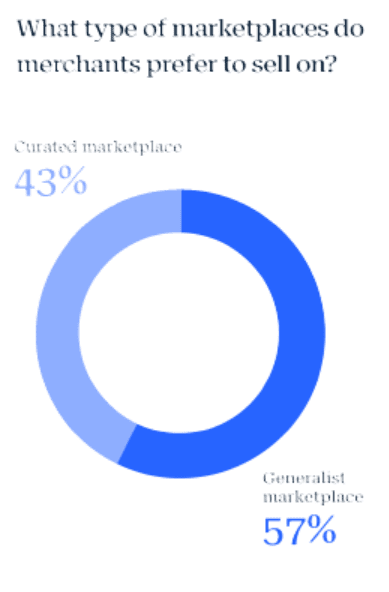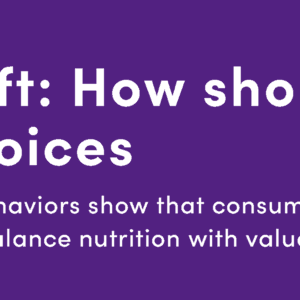Online marketplaces have been the talk of the town for the last couple of years. But, while they continued to make headlines in 2023, marketplaces themselves were no longer the hot commodity this year, marketplace sellers were.
This shift in power dynamic is driven by one major change — Amazon is no longer the only game in town. The last few years have seen a veritable explosion of online marketplaces, and a number of these newer platforms have become sophisticated enough to challenge Amazon’s dominance. Brands, even those built on Amazon, have choices now; and newer marketplace operators like Walmart and Target, as well as OGs like Ebay, are making a determined pitch to be the platform of choice for third-party sellers.
Marketplace Sellers Move into the Driver’s Seat
At this year’s series of seller-focused conferences, executives from Amazon, Walmart and Ebay sounded like they were all reading from the same playbook, and the go-to tagline was: “We only succeed if you succeed.” The competition to attract sellers has reached a boiling point, and it couldn’t come at a better time for these merchants, which for years have struggled with the rising cost of doing business on the main U.S. marketplaces.
“For a long time, Amazon, Ebay and Walmart were the go-to marketplaces, but now it’s gotten very expensive to sell on some of those platforms, so it’s not as much of a shoo-in for sellers,” said Fareeha Ali, Director of Strategy and Market Intelligence at marketplace SaaS solution Mirakl in an interview with Retail TouchPoints. “There’s fulfillment costs and advertising costs. Not to mention, those particular platforms are more competitive [when it comes to capturing consumer attention]. Sellers are looking elsewhere for profitability.”
Advertisement
In its annual seller report, Mirakl found that 56% of the sellers surveyed already sell on more than two marketplace or dropship platforms and 62% plan to expand to additional marketplaces in the next 12 months. Additionally, brands that had previously avoided marketplaces are now taking the plunge, with the number of businesses selling on marketplaces in 2022 increasing 31% year over year.

“What really stood out to me in this year’s report is that there are more brands selling on more marketplaces,” said Ali. “There was this period of time where you saw all these reports of [brands like] Birkenstock and Nike taking their stuff off of Amazon. Now we’re starting to see that shift back.
“With more big-name brands taking this approach, the marketplaces have to sell themselves a little bit more, because there’s a new type of seller out there that they really want,” Ali added. “They want to make sure they don’t just have the wholesale business, but also the seller business.”
Some of the brands that have recently begun selling on Amazon include Gap, Victoria’s Secret and Allbirds. And among Mirakl’s global network of 65,000 sellers, 53% are brands, 15% are retailers and just 32% are marketplace-native sellers.

There’s a reason brands and retailers are flocking to marketplaces. Not only has the stigma around marketplaces declined, but marketplace and dropship businesses are growing 6X faster than the rate of overall ecommerce, according to Mirakl data.
“Selling online is hard, whether you’re a retailer, a seller or a brand,” said Ali. “It’s hard to find an audience and ecommerce is just expensive. Marketplaces have given companies the opportunity to have a more profitable online business and reach a bigger audience.”
How Sellers are Picking Their Marketplaces
Marketplaces allow retailers to expand their product line quickly and profitability, and as a result more and more retailers are adding marketplaces to their ecosystem. Sellers are now spoilt for choice. “It’s so nice to me that we’ve finally gotten to a point where sellers have more control,” said Ali. “They get to choose, and I think that’s awesome.”
So how are they choosing? Among the top differentiators for sellers, according to the Mirakl survey, are a marketplace’s website traffic, product categories, commission rates and ease of use.

Because these factors are so top of mind, more sellers are choosing curated marketplaces that focus on a specific category or consumer like Maisonette or Consumerhaus either in addition to, or instead of, the generalist marketplaces, like Amazon and Walmart, that welcome almost any brand. Of the sellers surveyed by Mirakl, 43% prefer curated marketplaces, while 67% still prefer the generalists.
“Conversion is so hard online right now,” explained Ali. “If you have a more targeted audience, where a seller’s product assortment and the marketplace’s product assortment are very similar, they’re basically helping each other. These smaller marketplaces offer sellers the opportunity to not just get lost in the shuffle of 7 million other products. Yes, you want to have broader reach, but you also want to make sure that within that marketplace there is an audience you can target to have a good conversion rate.
“From our own discussions with our clients about how they recruit sellers, we know there’s also a benefit in that these more targeted [marketplace] operators often pay more attention to their sellers,” Ali added. “They view it as a partnership, so they’ll often do things like share data so sellers can optimize their product assortment.”
Another thing sellers are increasingly looking for is a good customer experience for themselves, according to Ali. “Things like the back office that you’re giving to your sellers and the technical aspects of onboarding to your platform are super important,” she said. “Treat your sellers the way you treat your consumers, because they are a partner.”















